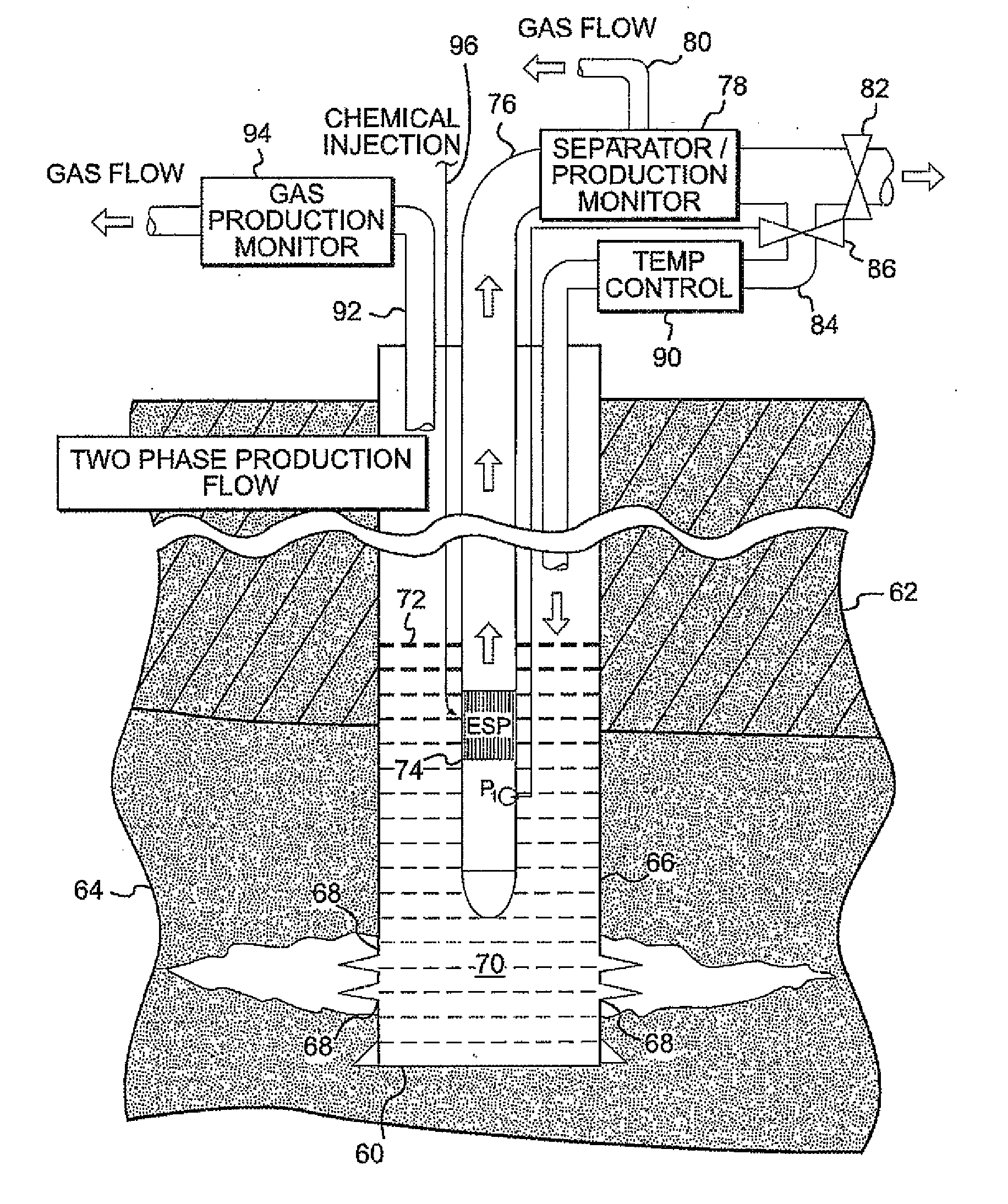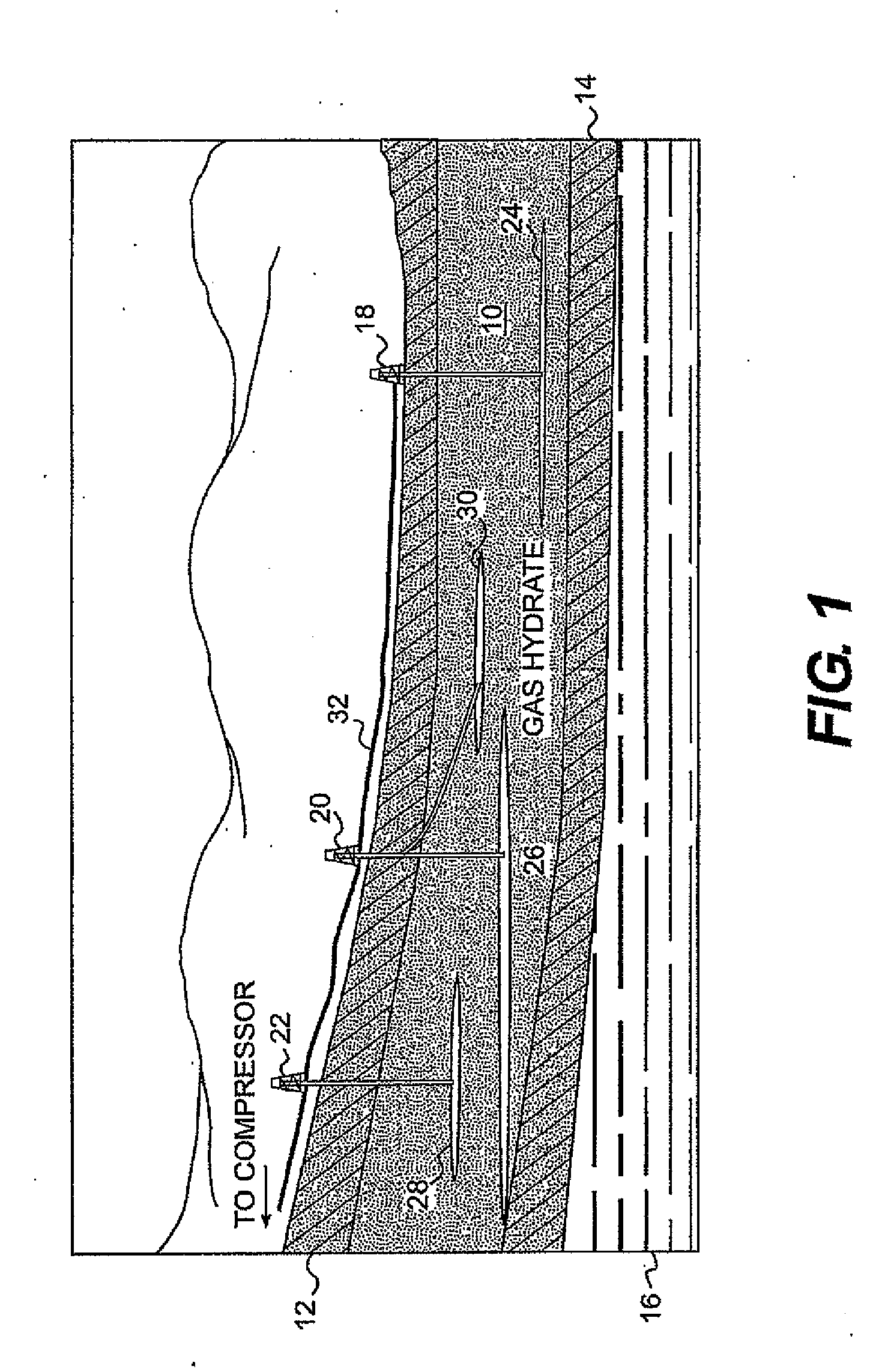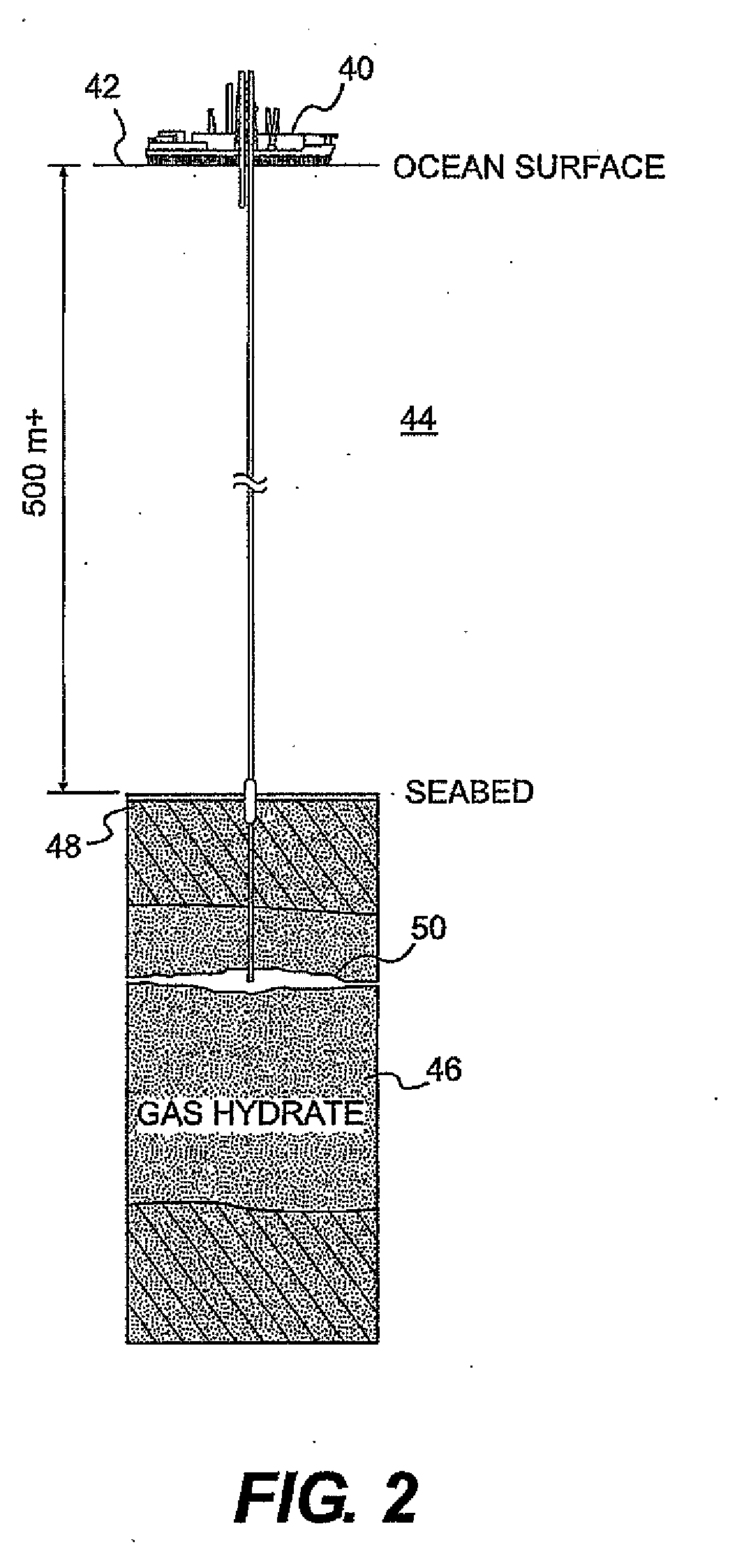Method and system for development of hydrocarbon bearing formations including depressurization of gas hydrates
a gas hydrate and hydrocarbon bearing technology, applied in the field of gas recovery system and method for subterranean gas hydrate formation, can solve the problems of not having enough methane and water production, etc., to achieve the effect of shortening the life of the pump and affecting the formation stability
- Summary
- Abstract
- Description
- Claims
- Application Information
AI Technical Summary
Benefits of technology
Problems solved by technology
Method used
Image
Examples
Embodiment Construction
[0024] Turning now to the drawings wherein like numerals indicate like parts, FIG. 1 discloses a pictorial representation of one operating context of the invention. In this view a band of gas hydrate 10 lies in a rather shallow geologic zone beneath a permafrost layer 12 such as exists in Alaska. Other earth formations 14 and / or aquifer regions 16 can exist beneath the gas hydrate.
[0025] In order to recover sequestered methane gas from within the gas hydrate zone one or more wells 18, 20 and / or 22 are drilled through the permafrost 12 and into the gas hydrate zone 10. Usually a casing is cemented within the well and one or more windows are opened directly into the hydrate zone to depressurize irregular regions of the gas hydrate represented by irregular production zones 24, 26, 28 and 30 extending away from distal terminals of the wells. Although a single well is shown drilled from a single derrick illustrated at 18 and 22 it is envisioned that directional drilling as illustrated a...
PUM
 Login to View More
Login to View More Abstract
Description
Claims
Application Information
 Login to View More
Login to View More - R&D
- Intellectual Property
- Life Sciences
- Materials
- Tech Scout
- Unparalleled Data Quality
- Higher Quality Content
- 60% Fewer Hallucinations
Browse by: Latest US Patents, China's latest patents, Technical Efficacy Thesaurus, Application Domain, Technology Topic, Popular Technical Reports.
© 2025 PatSnap. All rights reserved.Legal|Privacy policy|Modern Slavery Act Transparency Statement|Sitemap|About US| Contact US: help@patsnap.com



